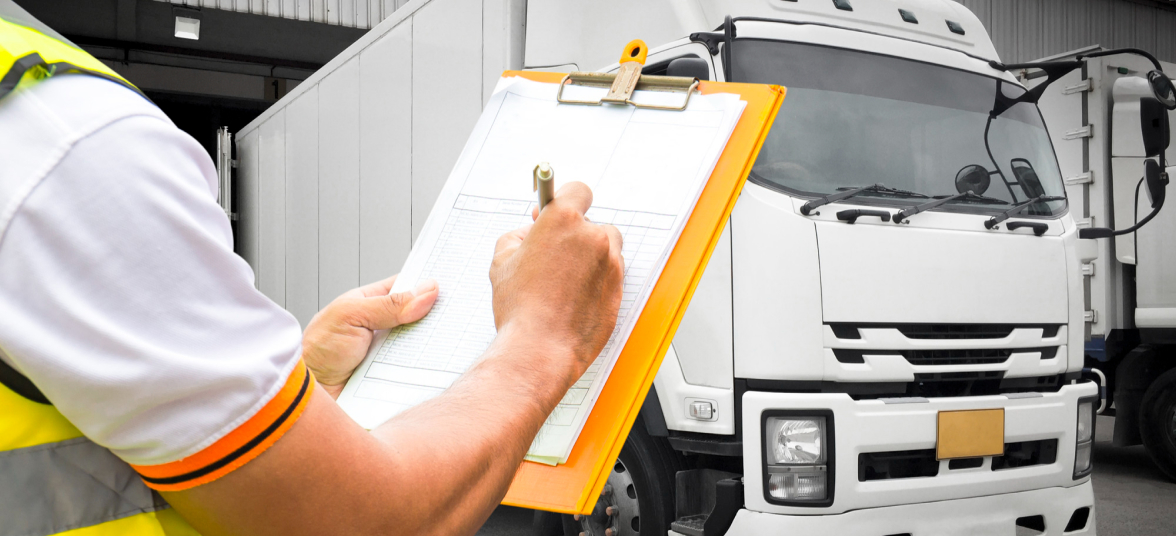Running a trucking business in Pennsylvania involves much more than managing routes and maintaining vehicles—it also requires protecting your business with the right commercial truck insurance. With the state’s growing logistics and freight industry, truckers face unique risks every day, from road accidents to cargo damage and regulatory compliance issues. Having the right insurance coverage ensures your company stays financially secure and compliant with both state and federal laws.
If you’re a trucking business owner, independent operator, or fleet manager in Pennsylvania, understanding how to find and secure the best commercial truck insurance is crucial. Below, we’ll cover key insights, expert tips, and essential considerations to help you make informed decisions about your insurance coverage in 2026.
Understanding Commercial Truck Insurance
Commercial truck insurance is a specialized form of commercial vehicle insurance designed specifically for trucks used in business operations. It provides coverage for liability, physical damage, cargo loss, and other potential risks associated with trucking. The main goal is to protect your assets, drivers, and customers in the event of accidents, theft, or damage.
There are several types of commercial truck insurance policies, including:
- Primary Liability Insurance: Covers bodily injury and property damage to others caused by your truck.
- Physical Damage Coverage: Protects your vehicle against collision, fire, theft, and vandalism.
- Motor Truck Cargo Insurance: Covers damage or loss of the cargo being transported.
- Bobtail or Non-Trucking Liability: Provides coverage when the truck is used for personal reasons or not under dispatch.
- General Liability Insurance: Covers damages or injuries caused by your business operations beyond driving.
Pennsylvania’s Requirements for Truck Insurance
Pennsylvania law requires all commercial trucks operating within the state to carry minimum liability coverage. The amount of coverage you need depends on the type of cargo you haul and whether you operate intrastate or interstate.
For most trucking businesses, the minimum requirements include:
- $300,000 for non-hazardous freight in vehicles under 10,001 lbs.
- $750,000 to $5,000,000 for vehicles carrying hazardous materials or large loads, depending on the cargo type.
- $1,000,000 for trucks transporting household goods or passengers.
If you operate across state lines, you must also comply with Federal Motor Carrier Safety Administration (FMCSA) regulations and carry an MCS-90 endorsement to verify financial responsibility.
Failure to maintain the required insurance can result in severe penalties, including fines, loss of operating authority, and suspension of registration.
Factors That Affect Truck Insurance Premiums in Pennsylvania
Insurance premiums for commercial trucks vary widely depending on several key factors. Understanding these can help you take proactive steps to reduce your costs.
- Driving Records: Clean records for all drivers can significantly lower premiums. A history of accidents or violations increases risk for insurers.
- Type of Cargo: Hauling hazardous or high-value materials typically requires higher coverage and results in higher premiums.
- Truck Type and Age: Newer, safer vehicles may qualify for lower rates, while older trucks can cost more to insure.
- Distance Traveled: Long-haul trucking across multiple states generally leads to higher costs than local operations.
- Coverage Limits: The more coverage you choose, the higher the premium—but also the better the protection.
- Claims History: A history of insurance claims can make insurers view your business as higher risk.
Insurers also consider business experience, safety records, and how well you maintain your vehicles.
Tips for Getting the Best Commercial Truck Insurance
Finding the best truck insurance policy in Pennsylvania doesn’t mean simply choosing the cheapest option—it means finding the right balance between coverage, cost, and reliability. Follow these expert tips to get the best value and protection:
1. Work with a Specialized Insurance Agency
Truck insurance is complex and varies by vehicle type, cargo, and operating region. Working with an agency that specializes in commercial trucking ensures you get policies tailored to your needs. Experienced agents understand FMCSA compliance, state laws, and the nuances of risk management for trucking businesses.
2. Compare Multiple Quotes
Don’t settle for the first offer you receive. Request quotes from multiple insurers and compare the coverages, limits, and deductibles. Focus not just on price but also on the insurer’s financial stability and claim handling reputation.
3. Bundle Policies for Savings
If your business requires general liability, workers’ compensation, or cargo insurance, consider bundling all policies under one provider. Most insurers offer significant discounts for multi-policy coverage, helping you save money without compromising protection.
4. Improve Driver Safety and Training
Investing in driver safety training and regular compliance programs reduces the likelihood of accidents, which in turn lowers your risk profile. Many insurers reward safe companies with better rates and discounts.
5. Install Telematics and GPS Monitoring
Modern insurers increasingly rely on telematics to track driver behavior and route efficiency. By using GPS tracking systems, you can prove safe driving habits, reduce fuel costs, and qualify for lower premiums.
6. Maintain Your Vehicles Regularly
Routine maintenance reduces breakdowns and prevents costly claims. Keep detailed records of inspections, repairs, and maintenance activities—some insurers offer lower rates to businesses with verifiable maintenance logs.
7. Increase Your Deductible
If you can afford a higher out-of-pocket deductible, you can reduce your monthly premium. However, always make sure your business has enough reserves to cover potential claims.
8. Review Your Policy Annually
Your business evolves over time—so should your insurance policy. Review your coverage annually or after major operational changes such as fleet expansion, route adjustments, or new cargo types.
Importance of Having Comprehensive Coverage
Accidents and unexpected events can happen even with the best drivers and maintenance programs. Without adequate insurance, your business could face devastating financial losses, legal liabilities, or downtime. Comprehensive coverage doesn’t just protect your trucks—it protects your livelihood, reputation, and long-term success.
A well-structured commercial truck insurance plan ensures that your operations continue smoothly after an incident. From repairing vehicles to covering lost income and legal fees, it’s an essential part of keeping your trucking business on the road.
Protect your trucking business with the right insurance coverage today. Alchemy Insurance Agency specializes in helping Pennsylvania truckers find reliable and affordable commercial truck insurance tailored to their needs. Our experienced agents understand the challenges of the trucking industry and will guide you through every step to ensure your business is fully protected. Contact Alchemy Insurance Agency now for a personalized quote and expert advice.




